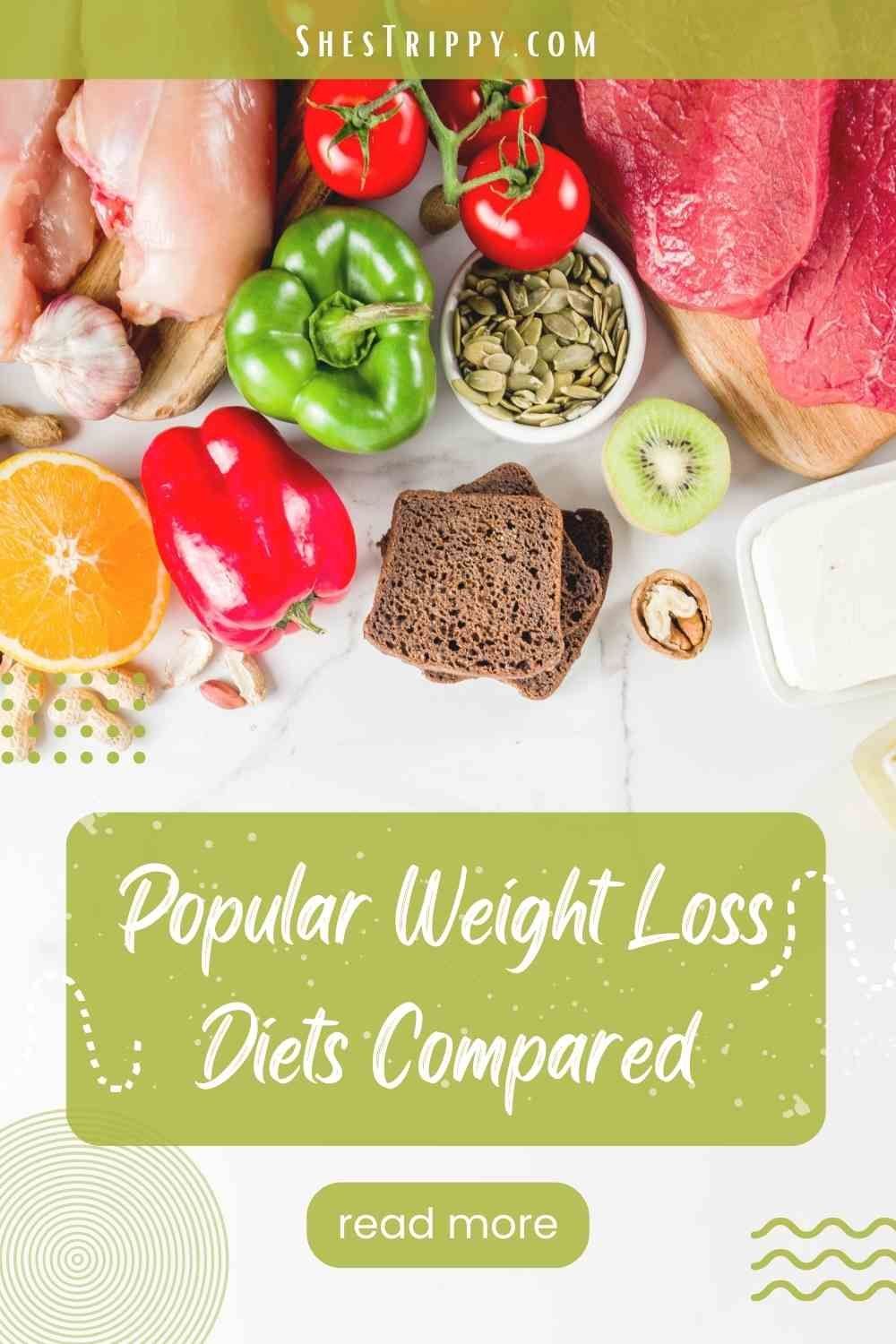Finding the right weight loss diet can feel like navigating a maze. There’s a ton of information out there, and it’s tough to know what’s truly effective and, more importantly, sustainable. This guide will cut through the noise and give you a clear picture of popular weight loss diets, helping you make informed choices for a healthier you. We’ll cover everything from the Mediterranean diet to intermittent fasting, highlighting the pros, cons, and key considerations for each.
Understanding the Landscape of Weight Loss Diets
Weight loss isn’t just about shedding pounds; it’s about building long-term healthy habits. The most effective weight loss diets focus on nutrient-dense foods, balanced meals, and sustainable lifestyle changes. Experts emphasize that a healthy rate of weight loss is around 1-2 pounds per week, and that consistency is key.
Before diving into specific diets, let’s address a common frustration. Have you ever felt like you’re doing everything right but the scale isn’t budging? You might be experiencing factors that affect your metabolism or even hidden sources of sneaky calories. If you find yourself at a standstill, it might be useful to explore why you are experiencing 3 weeks calorie deficit no and if it’s time to investigate hidden factors that could be influencing your weight loss journey.
Top Diet Choices for 2025: Expert Approved
Nutritionists continuously evaluate and rank diets based on their effectiveness, safety, and sustainability. Here are some of the top contenders for 2025:
- Mediterranean Diet: This diet emphasizes lean proteins like fish and poultry (limiting red meat), plenty of fruits, vegetables, healthy fats from olive oil and avocados, herbs, spices, and whole grains. Its heart-healthy and brain-boosting benefits are well-documented.
- DASH (Dietary Approaches to Stop Hypertension) Diet: Similar to the Mediterranean diet, DASH prioritizes fruits, vegetables, lean meats, and whole grains, but with a strong focus on limiting sodium intake (1500-2300mg/day).
- MIND Diet: Combining the best of both worlds, the MIND diet (Mediterranean-DASH Intervention for Neurodegenerative Delay) focuses on brain health. Load up on green leafy vegetables, berries, nuts, whole grains, lean protein, beans, and legumes, while limiting red meat, cheese, fried foods, processed foods, pastries, and sweets.
- Atlantic Diet: Embrace the flavors of the coast with fresh, local, seasonal seafood, vegetables, fruits, legumes, and whole grains. Traditional cooking methods like grilling, steaming, and baking with olive oil are encouraged.
- Intermittent Fasting: This approach focuses on when you eat, rather than what you eat. Popular methods include the 16:8 fasting protocol. Important note: always consult with your physician before starting intermittent fasting to ensure it’s appropriate for you.
- Paleo Diet: Also known as the “caveman diet,” Paleo seeks to emulate the eating habits of our Paleolithic ancestors. It emphasizes lean meats, fish, fruits, vegetables, nuts, and seeds, while excluding processed foods, grains, legumes, and dairy.
- Volumetrics Diet: Fill up without filling out! The Volumetrics diet emphasizes foods with high water and fiber content, such as fruits, non-starchy vegetables, broth-based soups, and nonfat dairy. It categorizes foods by calorie density, allowing you to eat larger portions of low-calorie foods.
- Noom: This popular mobile app-based program takes a behavioral approach to weight loss. It focuses on mindful eating, tracking tools, and behavioral changes. Noom uses a color-coded system to encourage the consumption of nutrient-dense foods.
- Vegetarian Diet: Excluding meat, the vegetarian diet often includes animal byproducts like dairy and eggs. To maintain a healthy vegetarian diet, avoid excessive dairy and processed options.
- Vegan Diet: This diet excludes all animal products. Vegans need to pay close attention to their protein intake and avoid relying on processed vegan “junk food.”
- Flexitarian Diet: A flexible approach to vegetarianism, the flexitarian diet reduces meat consumption while prioritizing plant-based foods.
- Pescetarian Diet: Similar to vegetarianism, this diet includes fish and seafood. Be mindful of portion sizes, especially of high-calorie foods in this category.
Essential Principles for Healthy and Sustainable Weight Loss
Beyond specific diet plans, there are fundamental principles that contribute to healthy and sustainable weight loss.
- Prioritize Nutrient-Dense Foods: Load up on lean proteins, fiber-rich foods (fruits, veggies, beans, whole grains), and healthy fats (avocados, nuts, seeds, olive oil).
- Stay Hydrated: Drink plenty of water throughout the day.
- Create Balanced Meals: Each meal should include a combination of protein, fat, and fiber (carbohydrates).
- Practice Portion Control: Be mindful of portion sizes. Use smaller plates if needed.
- Plan Ahead with Meal Prepping: This helps you stay on track with your diet, especially during busy weeks.
- Engage in Mindful Eating: Savor each bite and pay attention to your body’s fullness cues.
- Maintain Consistent Meal Times: Eating regularly can help avoid ravenous cravings and overeating.
- Limit Liquid Calories: Avoid sugary drinks and juices.
Weight Loss Traps to Avoid
Not all weight loss approaches are created equal. Some can be detrimental to your health and well-being. Here are some common pitfalls to avoid:
- Highly Restrictive Diets: These diets can lead to nutrient deficiencies, fatigue, and rebound weight gain.
- Inflexible or Extreme Rules: Rigid rules can increase stress and anxiety around food.
- Diets with Unproven Supplements or “Detox” Products: These can cause serious health issues.
- Diets Promising Rapid Weight Loss: Unsustainable and potentially harmful, these diets can trigger muscle loss and slow down your metabolism.
- Diets Lacking Whole Foods: Steer clear of diets that promote processed “diet” products loaded with artificial ingredients and lacking essential nutrients and fiber.
Putting It All Together: Building Your Personalized Weight Loss Plan
The “best” weight loss diet is the one you can stick with long-term. It should emphasize whole foods, allow for occasional treats, and fit seamlessly into your lifestyle. Consistency is more important than perfection.
Remember, sustainable changes are built on good habits. Don’t get discouraged if you hit some snags, and just get back on the bus. The journey can be filled with surprises; perhaps you find yourself experiencing 3 weeks calorie deficit no, even with dedicated effort. Staying the course and understanding the principles of health can build significant momentum.
Ultimately, it’s best to consult with a doctor or registered dietitian to create a personalized weight loss plan that aligns with your specific needs and goals. Instead of always striving for perfection, aim for progress to get yourself to a healthier, better you.
- Stainless Steel Food Storage for Healthier, Eco-Friendly Meal Prep - February 27, 2026
- Stainless Food Containers Offer Durable Storage for Everyday Meals - February 26, 2026
- Stainless Steel Containers Offer Superior Food Preservation and Durability - February 25, 2026










